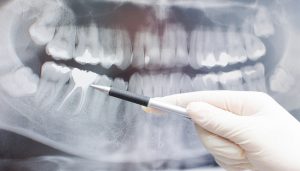Grinding your teeth might not seem like a big deal- many people do it, especially when they are asleep. However, the accumulation of wear and tear this puts on the teeth and jaw can cause a range of issues, everything from damaged enamel, chipped teeth, jaw pain, and even bruxism. A periodontist near Chicago IL is who you will need to reach out to if this ccurs. It can be difficult learning how to stop teeth grinding because most people do not even realize they are doing it. It is possible, however, with the right plan and that planning begins by understanding why you developed the habit in the first place.
Stress
Today, stress seems to be as much a part of our lives as breathing and eating. However, it is important to learn to deal with stress in a positive manner rather than through things like biting nails, clenching teeth, and other damaging habits we have developed to try and cope.
 Sleep disorders
Sleep disorders
Some sleep disorders, like the growing number of apnea cases, can lead to teeth grinding during their disrupted sleep. Signs of severe teeth grinding is often part of the diagnosis process for those who are unaware that they are suffering from sleep apnea or a similar condition.
Medication
Some medications have detrimental side effects and surprisingly some of the most commonly prescribed antidepressants have been linked to teeth grinding. In addition to this, certain diseases that affect the brain and mental focus are also believed to cause grinding of the teeth.
Bite misalignment
When you close your jaw, the top and bottom sets of teeth should align for an even and uniform bite. When your bite is misaligned, it can put stress on certain areas, namely the back molars in most cases, and cause more damage and instances of teeth grinding there.
 Now that we have looked at some of the most common causes of teeth grinding, here are some tips that can help you reduce the severity and frequency of this damaging habit:
Now that we have looked at some of the most common causes of teeth grinding, here are some tips that can help you reduce the severity and frequency of this damaging habit:
- Have your bite evaluated
One of the first things you can do to fight teeth grinding is to talk to your dentists and ask them to evaluate your bite. This can be done to see if there are areas that are more prone to pressure and wear and tear- these are the areas more prone to grinding and damage.
- Learn to manage your stress
Some people are experts at dealing with stress in positive ways through creative outlets, exercise, and meditation. Others struggle to cope day in and day out. If you’re struggling with stress in your life, find a way to let go of the stress so you are less likely to grind your teeth.
- Seek counseling if necessary
In some cases, basic stress management and medication may not be enough to help you stop what can be a deeply ingrained habit for many. If you are stills struggling with teeth grinding after trying several alternatives, then professional counseling may prove beneficial.
-
 Be more aware and mindful
Be more aware and mindful
It is important to be mindful of the time you grind your teeth during the day. For instance, it may be while you are stuck in rush hour traffic, sitting in a meeting at work, or when the kids are fussing. Knowing your triggers makes it easier to take extra steps during those times.
- Relax the jaw muscles
Some people have been grinding their teeth and clenching their jaw for so long it’s almost a natural position for them. This can lead to jaw pain, toothaches, and headaches. Loosening the jaw and soothing the muscles can help relieve these painful symptoms.
- Wear mouth guards at night
In some cases, such as when apnea or other health conditions are present, it may be helpful to wear a mouth guard at night to protect the teeth and to gently keep the jaw in a fixed place all night long as you sleep. Many people find this helpful once they get used to the device.
- Consider realigning your bite
If it is determined your bite is misaligned, talk to your dentist about what might be done to fix it. Missing teeth or crooked teeth can throw off the alignment and these may be able to be fixed with a cosmetic dental procedure. Dental intervention can be enough to provide you the relief you are looking for.
 Teeth grinding is more than an annoying habit. In bad cases and when it is allowed to continue year after year, it can cause severe damage to your teeth. It is important to take steps to stop teeth grinding as much as possible or at the very least limit the damage it can cause. Here at Comfort Care Family Dental, we have helped many of our patients put an end to their teeth grinding woes and we can do the same for you. So, call today to get started!
Teeth grinding is more than an annoying habit. In bad cases and when it is allowed to continue year after year, it can cause severe damage to your teeth. It is important to take steps to stop teeth grinding as much as possible or at the very least limit the damage it can cause. Here at Comfort Care Family Dental, we have helped many of our patients put an end to their teeth grinding woes and we can do the same for you. So, call today to get started!
Comfort Care Family Dental P.C.
1001 E Chicago Ave #143, Naperville, IL 60540
(630) 369-0111
http://www.comfortcaredentists.com


 Sleep disorders
Sleep disorders Be more aware and mindful
Be more aware and mindful